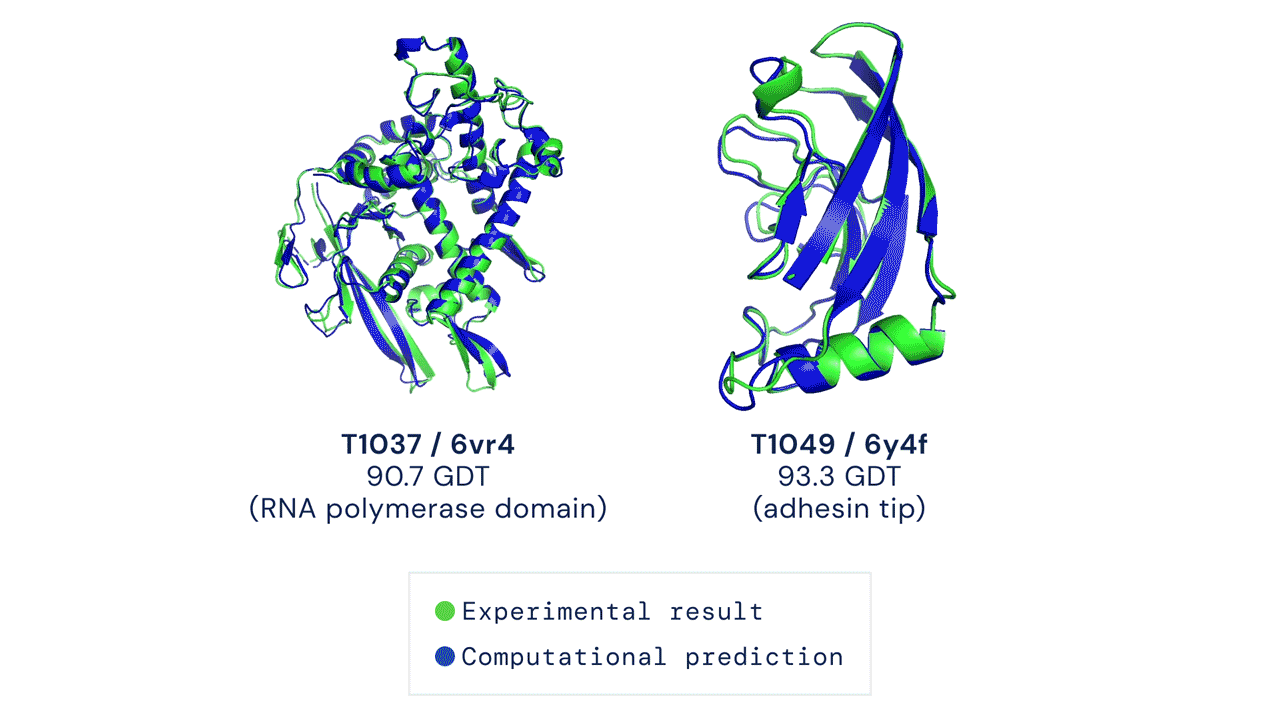The AI that kicked everyone's ass at StarCraft 2 has made 'a stunning advance' in protein folding
DeepMind's AlphaStar laid the groundwork, and now AlphaFold is doing bigger things.
Remember AlphaStar, the AI that kicked everyone's ass in StarCraft 2? That was cool. But it turns out that DeepMind, the Google-owned company that created it, had higher aspirations that just being really good at an RTS. As reported by The Guardian, DeepMind has a another AI called AlphaFold, and it's recently made unprecedented advances in the field of protein folding.
Protein folding is the process by which protein chains acquire their three-dimensional structures, which are foundational elements of biology. The more scientists can understand the process and predict how protein folding occurs, the better equipped they are to develop medical treatments for a tremendous range of illnesses and disease. It also opens the door to other advances, like the development of better GM crops.
The trouble is that there are a massive number of possible combinations—humans have more than 20,000 proteins, according to this Carleton University report on using AI to develop a COVID-19 treatment, with more than 200 million potential interactions between them—and determining these shapes is a slow and painstaking progress.
Distributed computing projects like Folding@home have helped (and we have a team, if you'd like to contribute), but the AlphaFold project promises much bigger things: It outperformed other entrants in a recent Critical Assessment of Protein Structure Prediction program, which is obviously big, but it also maintained a level of accuracy on par with conventional lab-based methods.
"This computational work represents a stunning advance on the protein-folding problem, a 50-year-old grand challenge in biology," Royal Society president Venki Ramakrishnan said. "It has occurred decades before many people in the field would have predicted. It will be exciting to see the many ways in which it will fundamentally change biological research."
"This is a problem that I was beginning to think would not get solved in my lifetime," EMBL European Bioinformatics Institute director emeritus Janet Thornton said. "Knowing these structures will really help us to understand how human beings operate and function, how we work."
AlphaFold is not AlphaStar, but it's built on the foundations laid by the StarCraft 2-playing AI. Much like picking out school buses and stop signs in captcha sequences is teaching Skynet what to shoot at, learning to play StarCraft at a high level helped DeepMind's AI project develop the ability to take on tougher "real-world problems."
Keep up to date with the most important stories and the best deals, as picked by the PC Gamer team.

It's a tremendous step forward, but DeepMind said in a blog post that goes into detail on the research that "there are still many questions to answer."
"Not every structure we predict will be perfect. There’s still much to learn, including how multiple proteins form complexes, how they interact with DNA, RNA, or small molecules, and how we can determine the precise location of all amino acid side chains," it wrote. "In collaboration with others, there’s also much to learn about how best to use these scientific discoveries in the development of new medicines, ways to manage the environment, and more."
"For all of us working on computational and machine learning methods in science, systems like AlphaFold demonstrate the stunning potential for AI as a tool to aid fundamental discovery. Just as 50 years ago Anfinsen laid out a challenge far beyond science’s reach at the time, there are many aspects of our universe that remain unknown. The progress announced today gives us further confidence that AI will become one of humanity’s most useful tools in expanding the frontiers of scientific knowledge, and we’re looking forward to the many years of hard work and discovery ahead!"

Andy has been gaming on PCs from the very beginning, starting as a youngster with text adventures and primitive action games on a cassette-based TRS80. From there he graduated to the glory days of Sierra Online adventures and Microprose sims, ran a local BBS, learned how to build PCs, and developed a longstanding love of RPGs, immersive sims, and shooters. He began writing videogame news in 2007 for The Escapist and somehow managed to avoid getting fired until 2014, when he joined the storied ranks of PC Gamer. He covers all aspects of the industry, from new game announcements and patch notes to legal disputes, Twitch beefs, esports, and Henry Cavill. Lots of Henry Cavill.


